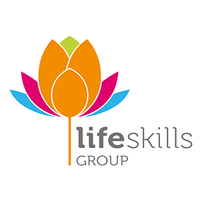We know that when students are tired, they struggle to concentrate and when students can’t concentrate, they find other ways of entertaining themselves, most likely through disruptive or silly behaviour. Sometimes students could just be having an off day, but if students are constantly feeling tired and do not address it, tiredness can turn into fatigue.
It’s not uncommon for students to identify that they are feeling tired when they turn up to school and there could be a multitude of reasons as to why. When students are tired there are a couple of steps that you can take to support your students and give them strategies that they can use to prevent tiredness before it becomes a larger issue. Continue reading to discover 7 tips to support tired students.
1. Encourage an open dialogue
Acknowledging that they are tired helps students feel seen. Often when a student is feeling tired, there may be a root cause that they may not realise is connected. Finding out why students are feeling tired will help establish open communication. could it be that they had no sleep, maybe they spent too much time on their devices. Getting to the root cause may help students to take next steps in supporting their own wellbeing.Ask students to take 3 slow breaths. As students breathe in and out, invite them to notice the sensations that they are feeling in their body and the thoughts that are wandering in their mind. Recognising how students are feeling and encouraging them to notice what is happening in their bodies will help bring them into the present moment.
2. Establish a morning routine
Give students responsibilities as soon as they walk into the classroom. It might be unpacking and organising their desk space, writing the day's activities on the whiteboard, reading out notices and school events or taking attendance. Whatever your routine, motivate students by assigning roles and responsibilities, helping students to engage in group participation and activate their thinking muscles.
3. Get moving
Do your students just need a brain break? Even the simplest act of getting your students to stand up and shake it out can help them refocus. It takes 30 seconds but can help students wake up through a simple change of state. If you need some simple movement ideas that take moments to implement, download our set of Fundamental Movement Activities.
4. Establish healthy habits
When you speak to your students about why they might be feeling tired, do they say things like “I stayed up late to watch TV or play games” or “I haven’t eaten lunch today”. It’s well known that unhealthy habits are often associated with students feeling tired. Start a conversation by asking students what they could do that might be able to help them make healthy choices, you never know what they might come up with.
Some things that may help students form healthy habits:
- Drink plenty of water
- Be mindful of the food they are eating
- Exercise regularly
- Turn off the the screen 30 minutes before bed
- Read a book instead of watching TV or playing games
Motivating students to take control of their own wellbeing and explaining the importance of a good routine help students to feel empowered to take responsibility and develop self management skills.
5. Encourage group work
Tired students may benefit from the support and motivation of their peers. Working together allows them to share ideas, brainstorm, and learn from each other, which can be invigorating and foster a sense of belonging within the class. Try our set of SEL & Mindfulness Resources For Your Classroom to encourage teamwork, open communication and self-awareness.
6. Play to the patterns
If your students are showing consistency when they are turning up to school tired, it might be good to change up which lessons are being run on those days. For example if you notice that students coming to school on Mondays run down after very busy weekends it may be more effective to start with more physical or collaborative lessons, moving the more intensive lessons to a time slot that yields higher engagement rates. If you are not sure when your students are at their peak readiness to learn, engaging with wellbeing assessment tools will provide evidence and awareness to effect change.
7. Utilise edtech tools
Leverage educational technology to enhance the learning experience for tired students. Various edtech platforms offer interactive and engaging learning materials that can capture students' attention and keep them involved. Gamified learning or digital scenarios can be especially helpful in making lessons more engaging.
Conclusion
Supporting tired students is not just a responsibility; it is a remarkable opportunity to make a profound impact on their lives. By implementing these seven valuable tips, teachers can establish a nurturing and empowering learning environment that cultivates resilience, growth, and ultimate success. It is crucial to remember that as educators, our commitment to our students' well-being surpasses mere academic accomplishments. Let us empower our exhausted students to unlock their full potential, one step at a time. Happy teaching!
.png?width=500&height=374&name=Logo_transparent%20(2).png)





